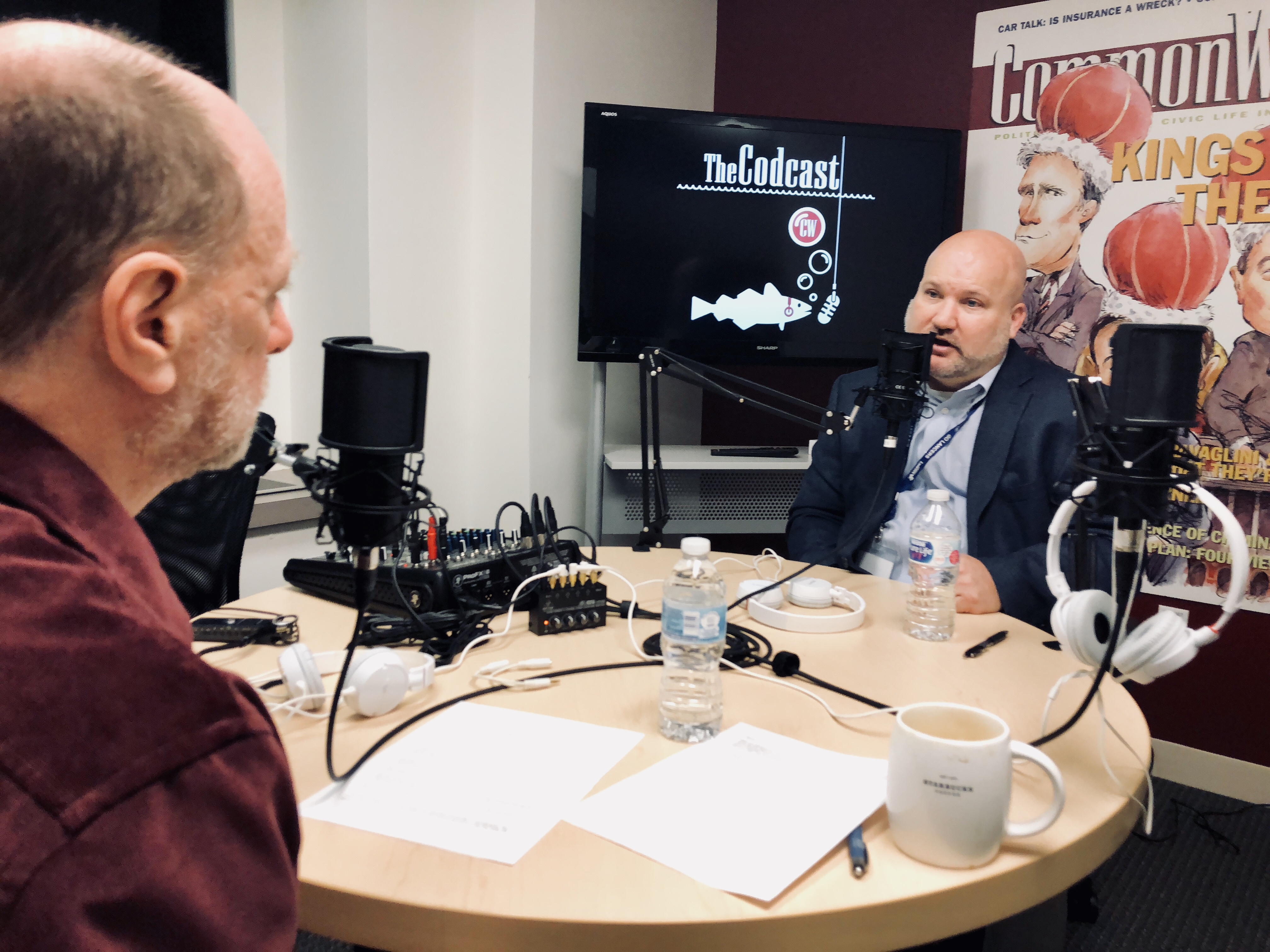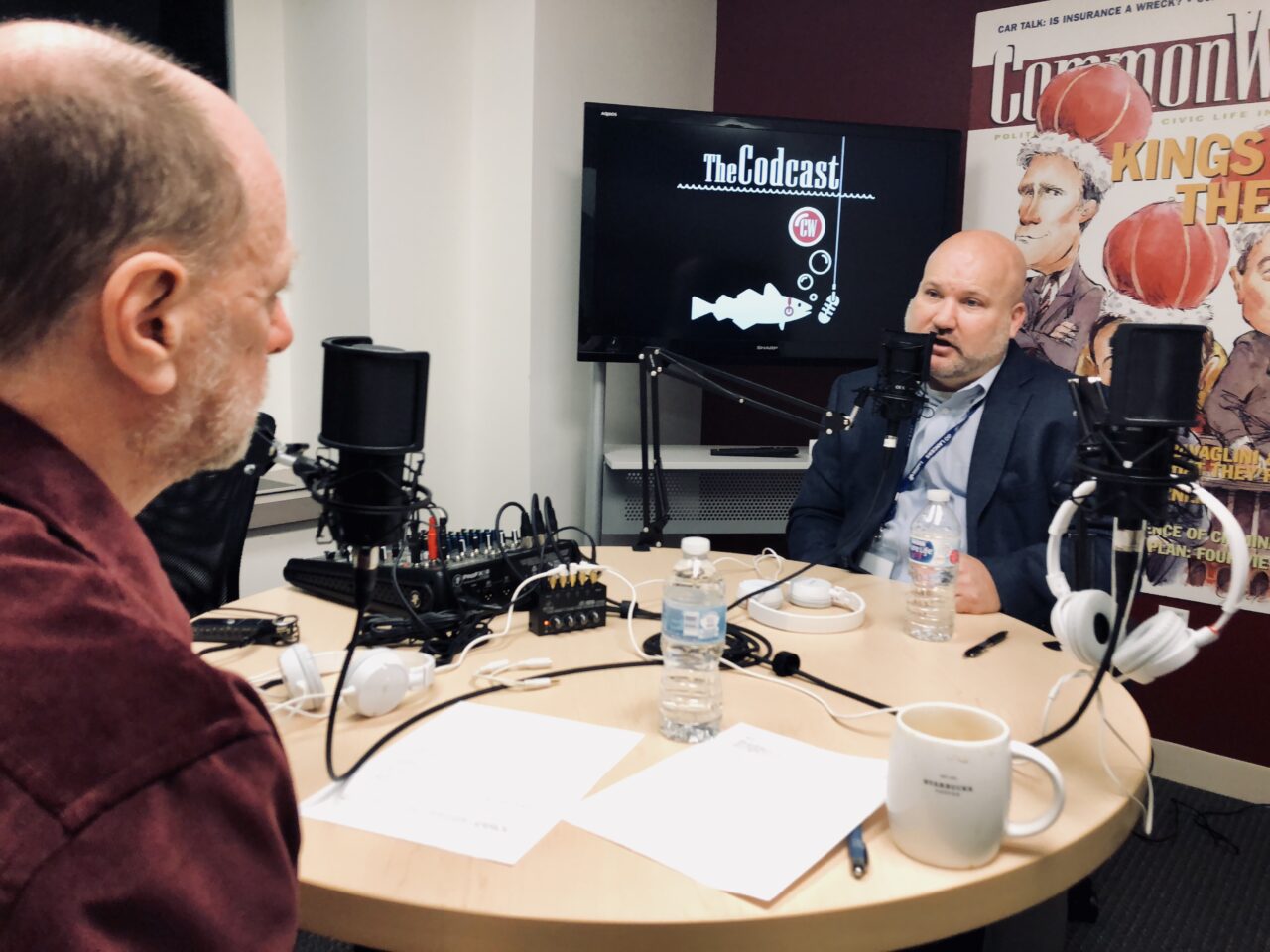
Jeff Riley won the backing last week of the state Board of Elementary and Secondary Education to be the next state education commissioner based in large part on his work over the last six years as the state-appointed receiver for the Lawrence schools.
If somebody can show real gains in what was arguably the lowest-performing, most troubled school district in the state, the board seemed to reason, he looks like the right guy to tackle what nearly everyone agrees is the biggest challenge in K-12 schooling — closing the achievement gap that separates black and Latino students and students living in poverty from their white and better-off peers. What’s more, Riley seemed to do that while minimizing the degree of acrimony that could accompany a state takeover in which he was essentially the schools czar, with nearly unfettered power to remake the district, including hiring and firing teachers at will.
Riley says he tried to “build a plan that was collaborative,” including a strong voice for teachers, parents, and other community stakeholders in Lawrence. That’s the same approach he wants to bring to his state post, where he hopes to help “heal” the divisions that have sometimes turned education policy debates into trench warfare.
What’s less clear is exactly how he’ll go about doing that — or how he might take some of the promising reforms he was able to implement using his broad powers in Lawrence and seed them more widely in districts also in need of new approaches to tackle persistent low achievement.
In Lawrence, Riley extended the school day for all K-8 students. “We felt like we needed more time for our kids for additional instruction,” he says. But not just to bolster their skills in core academic subjects, “but also to add back what I call ‘opportunity gaps,’ which are arts and enrichment, sports, debate league, theater — things that kids love to go school for.”
He also tried to flip the role of the district office from dictating what should be done to schools to providing support for schools to better do their job. Too many district offices, he says, “have this attitude like, you work for us,” when it comes to individual schools. “What I said to my people [in the Lawrence central office] was, no, no, we work for the schools,” he says. The result was a much more decentralized system. “We’re going to push autonomy down to the schools. We’re going to hold them accountable, but we are going to become a support mechanism for them,” Riley says, describing the approach.
Is there a way to extend that model more broadly? We’ll see.
Riley has often remarked that he spent a lot of time during his previous role as principal at a Boston middle school evading the district office, whose mandates he thought were getting in the way of improving the school. How will someone who has recoiled at the dictates of central school bureaucracy now operate as the chief education bureaucrat for the whole state?
“Well, I’m not sure I completely recoiled,” Riley protests. But he goes on to say he thinks there is room for the state department to “differentiate” among districts — loosen up on those doing well, while paying more attention to those that aren’t.
Lawrence not only extended the school day, the district implemented a novel approach to low achievement by inaugurating something called “acceleration academies,” in which students give up their February or April vacation week to attend 30 hours of added instruction in small classes, with teachers the district regards as its top instructors.
“Last year we had almost 3,000 kids give up their February or April vacation. We’ve had to turn kids away,” Riley says of the innovative approach, which has been identified as a key factor in driving Lawrence’s student achievement gains, particularly in math.
Does he think other districts that struggle with low student achievement could launch similar initiatives? “I think we’re entering a time where we can actually have those conversations,” Riley says, careful not to get too far out ahead of things.
The same goes when asked about the role of testing, a hot-button issue on which Riley has waded in with criticism of the degree to which testing has come to guide what schools do. “I am a believer in test scores,” he says. “At the same time, the pendulum swung a little far, where people became so obsessed with testing that we forgot about things like arts and enrichment.” Riley calls himself “a moderate” on the issue, but offers no policy clues beyond that.
Though he says Massachusetts has the highest-performing charter school sector in the country, Riley also labels himself a moderate on charters. “Anybody’s that trying to get good results for city kids, I’m in favor of,” he says.
Riley says his first move in Lawrence was to spend a few months talking to everyone involved with the schools there, and he seems inclined to approach his new job the same way. That seems to capture the Riley approach: Reach out to bring everyone to the table, don’t tie yourself rigidly to a particular approach, try to drive conversation to be open to thinking outside the traditional school box.
–MICHAEL JONAS
